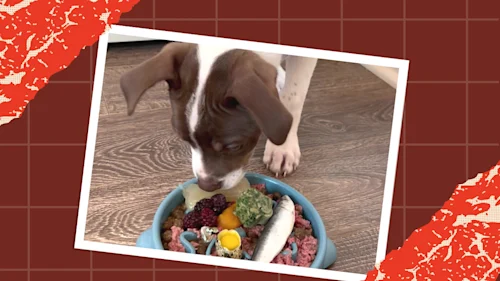
The Benefits of a Raw Food Diet for Dog Gut Health
Table of Contents
Did you know that your dog’s gut plays a role in about 70-80% of their immune system? That’s why gut health for dogs is so important and why a raw food diet for dog gut health can have such a huge positive impact on your pup’s quality of life.
Read on for symptoms of poor gut health in dogs, more information about your dog’s gut, and some tips for improving your dog’s gut health.
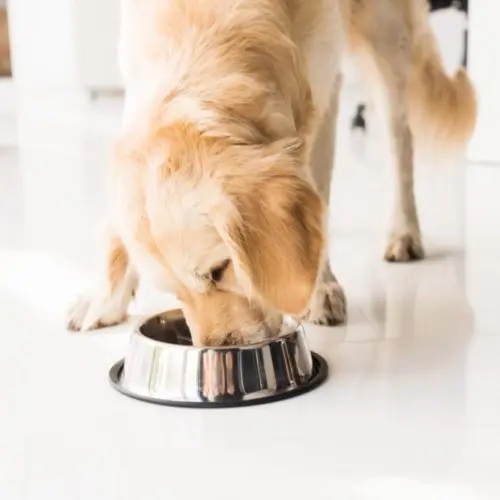
Signs of Poor Gut Health in Dogs
Some symptoms of poor gut health in dogs include:
•Vomiting
•Diarrhea
•Constipation
•Bloating
•Fever
•Dull coat
•Weight changes
•Gas and gurgling
•Joint pain
•Constant licking
•Yeast overgrowth
•Behavioral problems
•Poor sleep
•Low energy levels
•Food sensitivities
•Itching
•Irritation of the eyes and ears
•Bad breath
•Chronic inflammation
•Skin issues
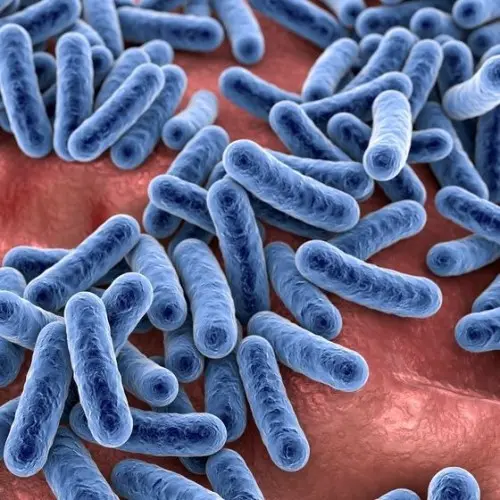
What Is the Gut Microbiome in Dogs?
As with people, dogs have thousands of different types of viruses, bacteria, fungi, and other microorganisms in their gastrointestinal tract. This collection of microorganisms is referred to as the gut microbiome. When properly balanced, your dog’s gut microbiome helps with things like:
•Preventing inflammation and diarrhea
•Digestion and nutrient absorption
•Synthesis of vitamins and minerals
•Improved immune system function
In a healthy gut, the good bacteria keep the bad bacteria in check. In an unhealthy gut, bad bacteria can overwhelm your dog’s system and cause a whole host of problems, including digestive problems, immune dysfunction, and more.

How Gut Health Impacts Immune Health in Dogs
When your dog’s microbiome gets out of whack, bad bacteria and viruses can more easily overwhelm your dog’s defenses, resulting in more illnesses, inflammatory issues, and other immune system issues.

What Can Damage the Gut Microbiome?
Many things can damage your dog’s gut microbiome, including:
•A high-carbohydrate, species-inappropriate diet
•Antibiotics
•Steroids
•Antifungals
•Deworming medications
•Immune suppressant drugs
•Environmental toxins
•Stress
Tips for Improving Your Dog’s Gut Health
Luckily, there are many things you can do to improve your dog’s gut health. The more of these tips you can implement, the better. Remember that it took time for your dog’s gut to get unbalanced, so it will take time to fully heal the gut, too.
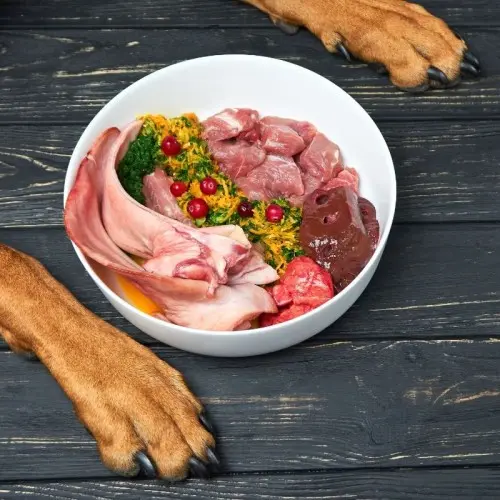
Feed High-Quality Raw Dog Food and Other Species-Appropriate Nutrition
It may seem counterintuitive when raw meat is associated with making people sick, but puppies fed raw food are significantly less likely to have gut problems than puppies fed kibble dog food. If your dog’s puppy years are in the past, it’s never too late to increase the diversity and abundance of healthy gut microflora by switching to a raw diet for dogs.
Do you worry about potential pathogens in raw meat attacking your dog’s weakened gut? We Feed Raw uses high-pressure processing (HPP) to eliminate potentially problematic pathogens while leaving some healthy bacteria intact.

Limit Simple Carbs in Your Dog’s Diet
Did you know that carbohydrates are not considered essential for a dog’s diet? In fact, added carbs:
•Disrupt the gut microbiome
•Wreak havoc on insulin metabolism (which can cause diabetes)
•Create inflammation that leads to organ and tissue degeneration
•Cause obesity and excessive hunger
As you can see, eliminating simple carbs from your dog’s diet can significantly improve your dog’s overall quality of life beyond just impacting their gut health.

Give Your Dog Variety
As scavengers, dogs are not meant to eat the same food every day; they thrive best on a diet full of variety. Adding more variety to your pup’s diet not only improves their gut microbiome, but it provides your dog’s body with the widest range of nutrients.
That’s why We Feed Raw offers 6 different proteins. And while our recipes are complete and balanced as-is, many dog owners enjoy adding optional toppers to increase the variety in their pooch’s diet.
Add Prebiotics, Probiotics, Fermented Foods, or Digestive Enzymes
Like with people, probiotics for dogs boost the type and amounts of good bacteria in the gut, which can help regulate digestion, defend against pathogens, improve immune system function, and more.
Prebiotics are a type of dietary fiber that feeds the healthy, probiotic bacteria, helping them flourish in your dog’s gut.
Fermented foods like kefir, yogurt, sauerkraut, and kimchi (as long as it doesn’t contain onions and is fed in small amounts) also add beneficial bacteria to your dog’s gastrointestinal tract. Fermented foods also have antioxidant, anti-inflammatory, and antimicrobial effects.
Digestive enzymes for dogs are proteins that help break food molecules down into smaller pieces. Digestive enzymes are naturally released by your dog’s pancreas, but they can easily be depleted, so providing your dog with supplemental digestive enzymes can help improve their gut health.
Deal With Food Intolerances and Allergies
Food intolerances and allergies can cause a wide variety of problems for dogs, including gastrointestinal issues. The most common dog food allergies and intolerances are wheat, chicken, beef, soy, lamb, eggs, nuts, and corn.
If you aren’t sure what your dog is allergic to, choosing a naturally limited ingredient food with a single protein source (like our turkey recipe) can help reduce the likelihood of your dog reacting to the food and may help improve their digestion and other allergy symptoms.
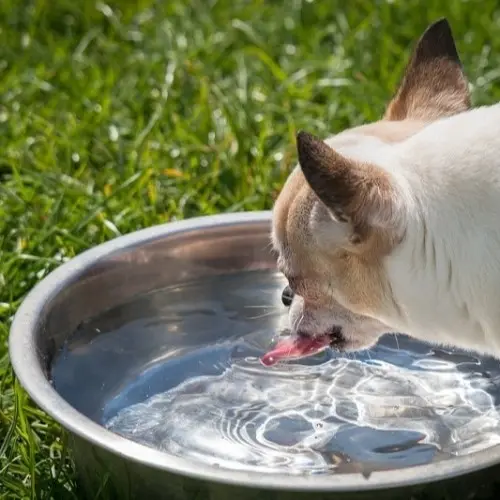
Keep Your Dog Hydrated
Proper hydration is critically important for your dog’s overall health in addition to their gut health. You should always make sure your dog has access to clean water, but feeding a moisture-rich raw diet is another great way to help ensure your dog gets all the hydration they need for optimal health.
Minimize Stress
Just like you might experience some “bubble guts” when you’re stressed out, your dog can have digestive issues when they’re stressed out, too. You can help minimize your dog’s stress by:
•Minimizing exposure to triggers
•Keeping them on a regular schedule
•Giving them plenty of walks and playtime
•Managing your own stress (dogs can smell our stress)
•Giving them relaxing treats that contain calming ingredients like CBD, melatonin, or chamomile
•Using products that release soothing pheromones
•Trying an anxiety vest
Avoid Unnecessary Antibiotics and Vaccines
While antibiotics and vaccines are sometimes necessary, both may be over-prescribed and both may wreak havoc on the gut. When your dog does require antibiotics or vaccines, giving them probiotics for a few days before, during, and after the medication or shot can help prevent too much stomach trouble.
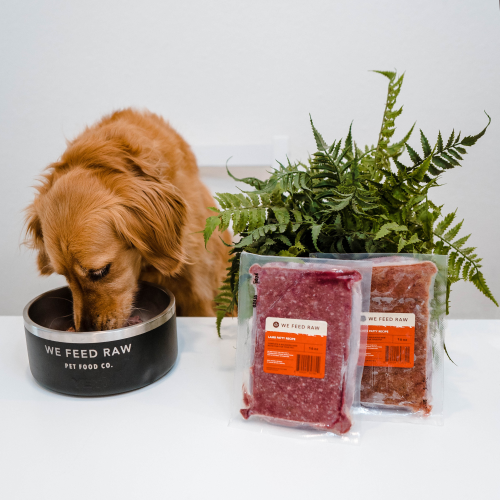
Switch to Raw for Improved Gut Health for Dogs
Overall, switching to low-carb, moisture-rich, species-appropriate raw dog food is one of the best things you can do for your pup and their intestinal health. We Feed Raw makes a raw food diet for dogs as easy as possible by sending you pre-proportioned patties directly to your door and telling you how much to feed your dog each day.
Frequently Asked Questions (FAQs)

What Are the Signs of Poor Gut Health in Dogs?
Some signs of poor gut health in dogs include:
•Vomiting
•Constipation
•Diarrhea
•Dull coat
•Bloating
•Fever
•Constant licking
•Yeast overgrowth
•Itching
•Chronic inflammation
•Weight changes
•Joint pain
•Behavioral problems
•Poor sleep
•Low energy levels
•Food sensitivities
•Gas and gurgling
•Irritation of the eyes and ears
•Bad breath
•Skin issues

What Can Cause Digestive Issues in Dogs?
Lots of things can cause digestive issues in dogs, including:
•A high-carbohydrate, species-inappropriate diet
•Antibiotics
•Antifungals
•Steroids
•Environmental toxins
•Deworming medications
•Immune suppressant drugs
•Stress
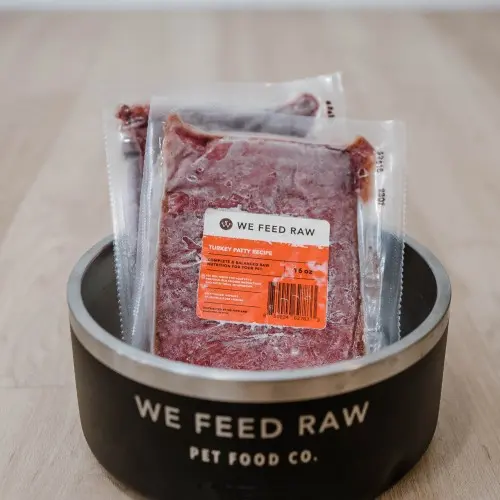
How Can I Improve My Dog’s Gut Health Naturally?
There are many ways you can improve your dog’s gut health naturally, including:
•Switch them to a raw diet
•Limit carbs
•Add prebiotics, probiotics, fermented foods, and digestive enzymes to their diet
•Avoid foods that trigger intolerances or allergies
•Keep your dog hydrated
•Minimize your dog’s stress
•Avoid unnecessary antibiotics and vaccines
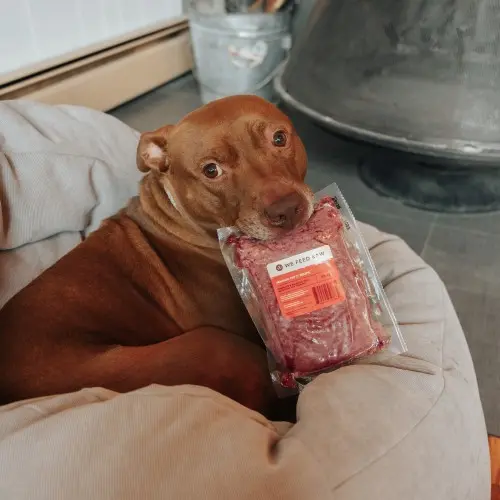
What Foods Are Good for Dog Gut Health?
Here are some foods that are excellent for dog gut health:
•Kefir
•Eggs
•Yogurt
•Whitefish
•Sauerkraut
•Berries
•Pumpkin puree
•Dark leafy greens
Should I Give My Dog Probiotics and Digestive Enzymes?
Yes, probiotics and digestive enzymes are great supplements to add to your dog’s diet to help improve their gut health.

How Long Does it Take to See Improvements in My Dog’s Gut Health?
While some dogs may symptom improvement in as little as a day or two after making changes to their diet, gut health problems are typically created—and treated—over the course of weeks, months, or years. It’s important not to give up if your dog doesn’t find instant relief when you start trying to improve their gut health.
Can Stress Affect My Dog’s Digestive System?
Yes. Just like people, dogs can suffer from digestive problems when they are stressed out. Removing or managing the stress, when possible, can improve your dog’s symptoms, as can taking other steps to help your dog’s digestive system overall.
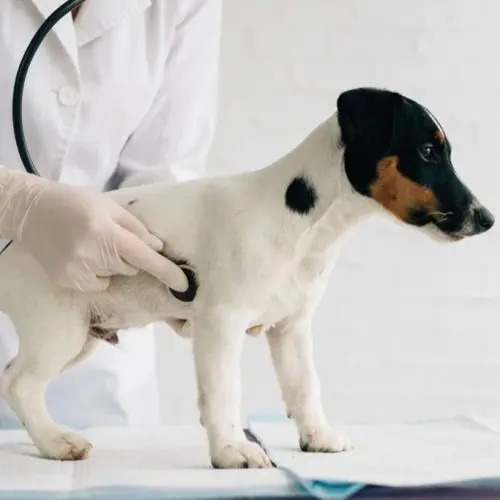
What Medical Conditions Can Affect Dog Gut Health?
According to the Merck Veterinary Manual: “Diseases that affect the stomach and intestines are common in dogs. They include infectious diseases such as bacterial, viral, and parasitic diseases and noninfectious disorders, such as tumors, bloat, and obstruction.”
A few examples they give of disorders that can affect dog gut health include:
•Canine parvovirus
•Constipation
•Gastritis (inflammation of the stomach)
•Gastrointestinal obstruction
•Hemorrhagic gastroenteritis
•Malabsorption
•Colitis (inflammation of the large intestine)
•Bloat
•Cancers of the digestive system
•Gastrointestinal ulcers
•Inflammatory bowel disease
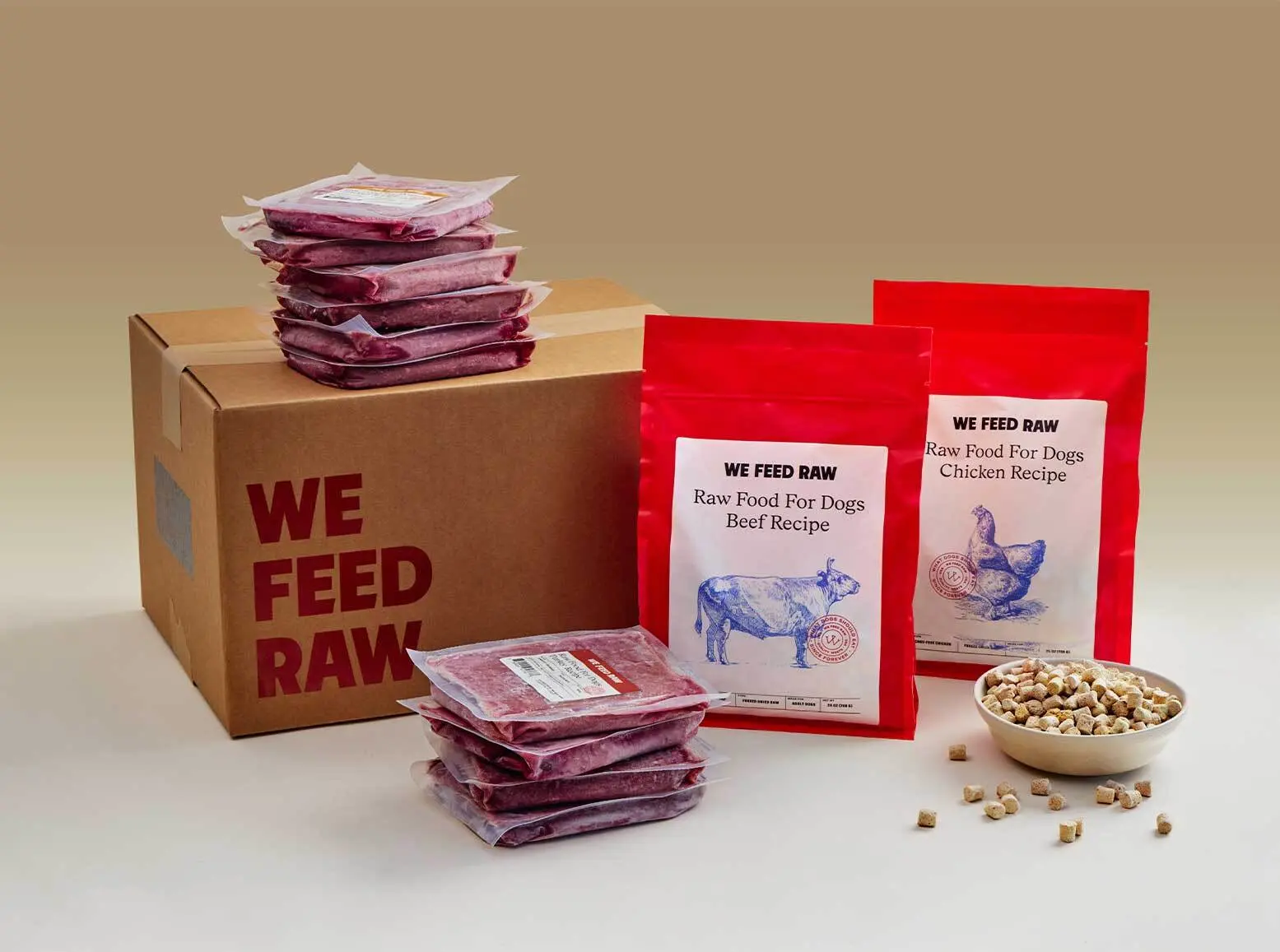
Our Meals Change Lives.
(Theirs + Yours.)
See health improvements from our raw meals in as little as 1 week.
